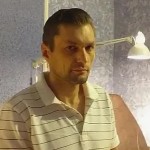Many parents see the cause of their children's failure in school as a high study load. "The child has so many assignments, he just doesn't have time to memorize everything!" "He's failing dictation again! But we prepared at home, learned all the rules. How could you be so inattentive?!" Of course, in some cases, the problem is laziness and lack of interest in learning. But experts who study brain processes, say that bad memory and inattention does not happen. It is all about the inability to train them. Today there are special complexes of gymnastic exercises for training and effective development of cognitive functions. What kind of exercises are these? How to master them? This is what we will talk about.
Scientists have proven that our brain is very flexible and malleable, and memory is truly limitless. Throughout life, in the brain constantly die off and again formed other, new connections.
It is the brain that ensures the optimal functioning of processes such as memory, attention, perception, thinking and speech.
And all these processes tend to develop dynamically in favorable conditions and worsen in damaging situations. The latter include neuropsychological stress at school.
Indeed, the tension of the modern educational process requires from the student a complete return in terms of cognitive, or cognitive, activity (from the Latin cognitió - "cognition").
"And if you also consider the high level of morbidity of today's schoolchildren, it becomes clear that the student is not always able to cope with the load offered to him," notes the neurologist Elena Vasilievna Kovaleva.
Academic performance problems associated with poor readiness of the cognitive sphere manifest themselves in the process of study in the form of poor memory, poor memorization, reduced attention span, increased fatigue and reduced motivation for cognitive activity. Such children skip letters in dictations, poorly count orally, cannot maintain attention throughout the lesson.
So how can you help a child become more attentive, learn to focus on important things, and make the most of their memory resources? It turns out that there is a very effective way to do this. As a specialist, Elena Kovaleva sees the solution in special brain training:
By including physical exercises of cognitive gymnastics in the learning process, we can activate the "intellect-body" system and improve the child's ability to learn.
Performance of special exercises leads to restoration of interhemispheric connections, improvement of psycho-emotional state, stimulates the development of cognitive functions. Well-organized movements contribute to the creation of new neuronal networks and, consequently, to the expansion of the brain's reserve capacities. At the same time the exercises are quite simple and clear, so they do not tire the child or burden the learning process.
Cognitive exercises are based on the program "Brain Gymnastics" developed in the 70's by the American scientist Paul I. Dennison for failing children.
It is remarkable that this set of exercises allows you to improve the child's condition and performance in school without any medication load on the growing body.
It should be noted that exercises give both immediate and cumulative effects. And the greatest result can be achieved if the complex is performed accurately and systematically.
Comparative diagnostics before and after performing the complex confirms that children have improved memory, attention, speech, increased efficiency and reduced fatigue.
Dennison hooks.
Exercise is worth doing before a lesson, tests, exams, public speaking, when you need to calm down and make the right decision, as well as in a state of excitement or depression.Exercise harmonizes emotions and thought processes, reduces mental stress, promotes appropriate actions and behaviors, helps to absorb new information, better understand the views of another and his own, consists of two parts.
Part 1.
Stand with your feet crossed. With your feet firmly planted on the floor.
Put your arms out in front of you, parallel to the floor. Cross your arms so that your palms are facing each other and interlace your fingers into a lock.
Bend your elbows, turn them inward and press them against your chest, so that your elbows are facing downwards.
Press your tongue against your hard palate just behind your upper teeth. Lift your eyes up and keep your gaze in this direction. The chin thus is lowered, the head is not lifted up. Breath is quiet, the body is relaxed. You can rock slightly - it is a normal reaction of an organism. If you sway strongly, it is better to sit down in the same position.
Part 2.
Put your feet parallel.
Unlock the lock of hands, put your hands down and connect the tips of the fingers of both hands with each other. Spread them out so that the joined thumbs are parallel to the floor, with the rest pointing down. The exercise takes two minutes or more.
Now look at the floor, but don't lower your head. Your tongue is still resting against the hard palate. Stay like that, relaxed, for a little while longer.
Cognitive gymnastics
Cognitive gymnastics is a complex of special exercises during which a connection between the kinesthetic, visual, optic-motor and auditory systems is established. In addition to cognitive gymnastics, the Center uses:
transcranial magnetic stimulation of the brain allows us to significantly improve the conduction of nerve impulses along the cortical pathways.
electropulse therapy - electrosleep.
The therapeutic effect of electrosleep is anti-stress, sedative and stimulating, increasing general vitality.
Back and head massage
The massage techniques stimulate and tone the central nervous system and have a relaxing effect on all of the body's physiological systems.
Homeopathy
Homeopathic remedies are selected for each specific case according to the law of similarity, taking into account the patient's condition, his constitutional and psychological type, hobbies, moods, eating habits, favorite sleeping position, dependence of complaints on time of day, cold or heat, dampness, food intake and many other individual characteristics.



You must be logged in to post a comment.